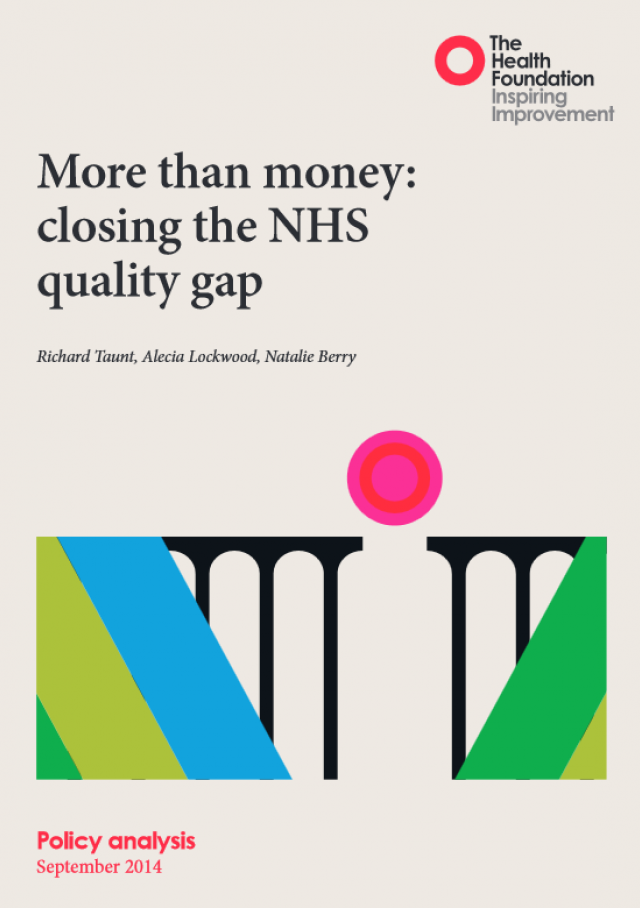More than money: closing the NHS quality gap
September 2014

Key points
- Systematic improvement support for providers: The key bodies within the health care system should support providers of care in implementing improvements to services, both within their own organisation and working with other providers to deliver integrated care. Such support might include building skills in basic management, change management, improvement skills and analysis, all with the objective of improving quality and efficiency.
- Targeted resources: Two types of funding are needed: first a 'transformation fund' to allow new services to be introduced and existing services to be improved; and second, as the financial gap cannot be closed by productivity alone, ongoing additional funding.
- Political openness and support for change: Political support is critical for the changes needed both in the short and medium term. A start would be a new candid dialogue between politicians and both the public and NHS about the challenges, and why significant change is needed now.
That the NHS faces a significant financial challenge is well known and much discussed. This ‘financial gap’ has been projected to reach £30bn by 2021. This is due to the disparity between the pressures on the NHS and the projected resources available to it.
More than money: closing the NHS quality gap discusses the implications of this financial gap for quality of care in the NHS.
It argues that additional resources alone will not be enough to close the ‘quality gap’: the difference between the quality of care the NHS should deliver, and what it is capable of delivering. This gap can be seen in the variations in care across the country and in the cracks we are starting to see appearing in areas such as mental health services, A&E waiting times and 62-day cancer waits.
Increasingly tight budgets make it likely that the quality gap will get wider. To stop this happening, we need to change how the NHS delivers services and is able to improve care to make it more efficient.
The report is partly underpinned by a joint workshop with the Foundation Trust Network which included senior representatives of 25 NHS and foundation trusts – acute, mental health, community, and ambulance – to explore the likely effects of the financial gap on the quality of care they provide.
In addition the report draws on an evidence scan, International responses to austerity, of the available empirical evidence on how six other countries (Portugal, Ireland, Denmark, Canada, Spain and the Netherlands) have dealt with austerity, focussing on what the most common policy responses were to financial pressures.
Further reading
Work with us
We look for talented and passionate individuals as everyone at the Health Foundation has an important role to play.
View current vacanciesThe Q community
Q is an initiative connecting people with improvement expertise across the UK.
Find out more

